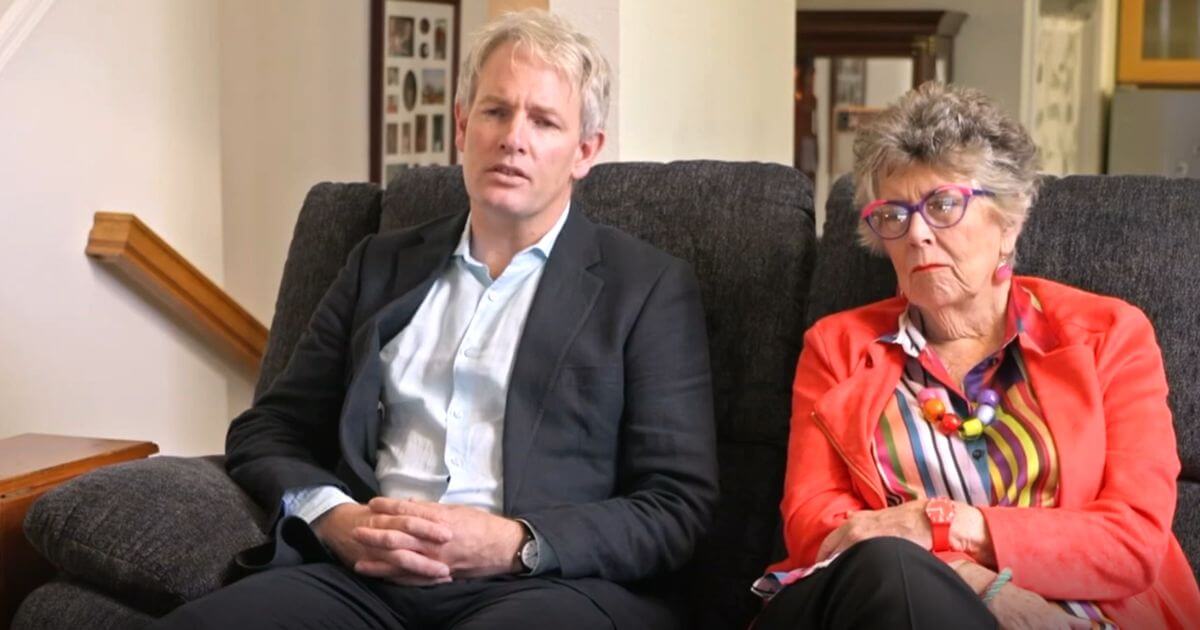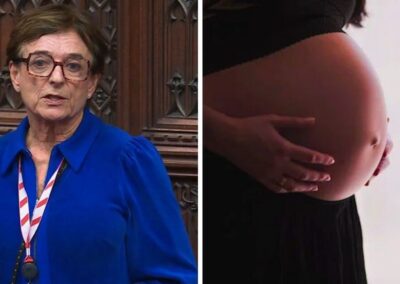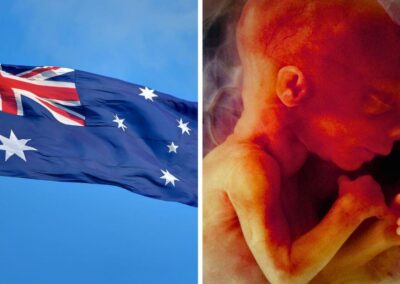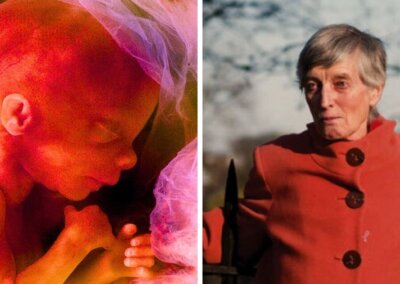The Great British Bake Off judge, Prue Leith, and her son, Danny Kruger MP, have embarked on a trip to parts of North America where assisted suicide and/or euthanasia are legal to better understand current laws and attitudes towards assisted suicide and euthanasia in a new documentary on Channel 4 entitled “Prue and Danny’s Death Road Trip”.
Dame Prue Leith, a patron for assisted suicide lobbying group, ‘Dignity in Dying’, would like to see assisted suicide legalised across the UK. Her son, the Devizes MP and chair of the All Party Parliamentary Group for Dying Well, is firmly against the legalisation of the practice arguing that “Assisted dying – it’s not healthcare, it’s an execution”.
The pair embarked on a trip across Canada and the West Coast of America to jurisdictions where assisted suicide and/or euthanasia is currently legal, where they had conversations with academics, proponents of assisted suicide and individuals considering the procedure.
They began by speaking to someone named Sher Safran in Seattle, Washington – which is among the most progressive states in the country. Sher shared a heartfelt story of her parents who both underwent assisted suicide after they were both diagnosed with terminal illnesses and had less than 6 months left to live, her father with Parkinson’s and her mother with cancer.
The accuracy of terminal illness prognoses can vary significantly. Research in 2016 from the Marie Curie Palliative Care Research Department at University College London found that the accuracy of prognoses for terminal illness can range from 78% down to a mere 23%.
“It was more akin to drowning”
Assistant Professor of Anesthesia at Emory University, Dr Joel Zivot, expressed his concerns about the lack of “rigorous medical evaluation” into assisted suicide. He believes that the autopsies of prisoners executed by lethal injection reveal what could happen to the body during assisted suicide.
He told Leith and Kruger that, contrary to popular belief, “the death wasn’t death by falling off asleep and then dying…in fact, it was quite different…it was more akin to drowning. Imagine drinking a glass of water. As you drink it, by mistake, some of it goes into your lungs. Everyone knows how exceedingly unpleasant that experience is.”
Answering Kruger’s question on why it was not obvious that the person was drowning, the doctor said this was due to “the design of execution”. He explained that “one of the other drugs given, is a drug that paralyses the body. So, you actually will always outwardly look very peaceful”.
Kruger and Leith then met with Dr Stefanie Green in Vancouver Island, who has assisted in the deaths of over 300 people. Dr Green explains that she doesn’t believe she is killing patients but instead believes the illnesses are.
They show a man called Jan visiting Dr Green requesting permission for assisted suicide and he shares how difficult his Parkinson’s symptoms have been to manage. Jan very frankly admits that what is largely driving him to consider assisted suicide is the feeling that he is becoming a burden to others. In 2021 in Canada, 35.7% of those seeking Medical Assistance in Dying (MAiD) gave as a reason their perception that they were a burden on family, friends or caregivers. In Oregon, however, concern about being or becoming a burden on family, friends, and caregivers ranks even higher as a motivation for assisted suicide at 54.2% in 2021.
Those opposed to assisted suicide point out that if society accepts that people like Jan are a burden, then it will not be long before others will begin to feel like they might be a burden too, including some of the most vulnerable people in society who often have similar experiences, such as those with disabilities or the elderly.
Kruger then showed the video of a Canadian man who, when asked for care, was offered assisted suicide instead. Roger Foley suffers from cerebellar ataxia, a disease that attacks the brain and muscles. In 2018, he secretly recorded hospital staff encouraging him to choose assisted suicide. After telling the member of staff that he would be fine if he just had funding, the staff member said “But if you weren’t, you, just, you can just apply to get an assisted, if you want to end your life, like you know what I mean. You don’t have to do it in some dramatic manner, you can apply for assisted, you know…”.
In response, Leith said, “I definitely don’t think that offering an assisted death is the right response in a conversation about what kind of care package they are asking”. Kruger called the situation ‘catastrophic’ and explained that if the man was feeling suicidal they should have brought a suicide prevention team and not offered him assisted suicide.
Assisted dying feeds into ableism and ageism
General Physician and Senate expert witness, Dr Ramona Coelho, shared a case where a thorough investigation was not done before administering MAiD (Medical Assistance in Dying). She expressed her concerns about assisted suicide altering perspectives on disability and illness as well as the fact that it would disproportionately affect those from disadvantaged backgrounds.
“For most people in Canada, that is not the case. They are not just able to access a psychologist for extra services or unlimited physiotherapy that they might need. If they are not accessible to them, they are allowed to go ahead and choose Medical Assistance in Dying.”
Leith remarked that this could be because “MAiD is so easily accessible and proper care isn’t”.
Medical Assistance in Dying for mental illness
Leith and Kruger finally met former BBC and CTV journalist, John Scully, who has covered over 35 wars and suffers from PTSD and depression. Scully would like to access MAiD when it becomes legal for mental health reasons in Canada. The former journalist explained that his thirty years of suffering from depression and PTSD with no end in sight should qualify him for MAiD, as having suicidal thoughts is like being terminally ill. John Scully has stated before that whilst MAiD would give him relief from his mental illness, the arrival of it makes him sad because “it just formalizes the utter failure of psychiatric medicine”.
Kruger expressed his concern about MAiD for mental illness being “death on demand”. He went on to tell Scully, “I don’t think you should die. I think you got a contribution to make to this world. You are valuable and you would be better off alive than you would be dead.”
One in five cite loneliness as a reason to want to die
In 2021, 10,064 people ended their lives by assisted suicide and euthanasia, an increase of over 32% from the previous year, accounting for 3.3% of all deaths in Canada.
According to the latest report on Medical Assistance in Dying from Health Canada, 17.3% of people also cited “isolation or loneliness” as a reason for wanting to die. In 35.7% of cases, patients believed that they were a “burden on family, friends or caregivers”.
Right to Life UK spokesperson Catherine Robinson said “The documentary highlights the dangers of introducing assisted suicide in the UK. MAiD not only adversely affects our perception of disability and illness but also puts those from disadvantaged groups and vulnerable individuals at risk. Kruger is right to conclude that the legalisation of assisted suicide is a slippery slope and would lead to “death on demand” for an ever-increasing number of reasons, as is the case in Canada.”












